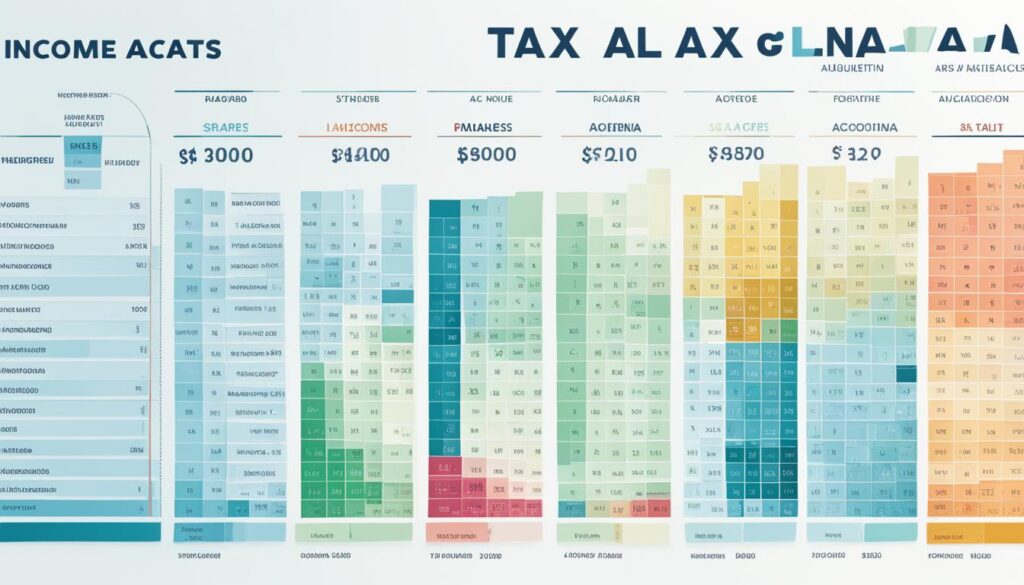Welcome to your comprehensive guide on navigating taxes in Argentina. This overview is essential for both individuals and corporations seeking to understand the complex landscape of tax regulations in Argentina. One of the primary components to cover is the personal income tax, or income tax in Argentina, which affects residents on their worldwide income, set within a progressive system. Furthermore, businesses must adhere to the corporate tax Argentina, which mandates a flat rate for various entities.
Alongside these taxes, residents and non-residents alike should be aware of the incidental Value Added Tax (VAT in Argentina), applicable on the majority of goods and services. Crucial elements such as tax filing requirements Argentina, available tax deductions Argentina, and the implications of tax residency deepen the understanding of this intricate system. For additional insights on specific tax obligations, you can check this informative source that elaborates on the intricacies involved.
Key Takeaways
- Argentina imposes a progressive income tax on residents, with rates diving between 5% to 35%.
- Tax years in Argentina align with the calendar year, running from January 1st to December 31st.
- The corporate income tax rate is 30%, varying for different types of corporations.
- Residents must report worldwide income, while non-residents are taxed only on Argentine-source income.
- Various deductions are permissible, including for medical expenses and retirement contributions.
Unlock Investment Opportunities Abroad
Introduction to Tax Regulations in Argentina
Understanding the Argentine tax regulations is essential for individuals and businesses operating within the country. The tax system functions under a complex framework that encompasses national, provincial, and municipal levels. Residents are taxed on their worldwide income, whereas non-residents only pay taxes on income sourced within Argentina. The Federal Administration of Public Revenues (AFIP) governs tax compliance in Argentina, emphasizing the importance of adhering to fiscal obligations and accessing the taxpayers rights Argentina. Tax compliance Argentina is significant to avoid penalties and to benefit from various tax incentives.
Recent trends show that the corporate tax rate on net taxable business profits in Argentina was set at 30% for fiscal years starting on or after January 1, 2018, and then reduced to 25% for fiscal years beginning on or after January 1, 20201. The general value-added tax (VAT) rate is 21%, with some exceptions allowing for reduced rates of 10.5% for specified goods2. Wealth tax is another important aspect, levied at a rate of 0.25% on the value of shares as of December 31 every year1. Additionally, various items such as automotive goods and luxury products are subject to excise taxes, with rates that can reach as high as 233%1.
Overall, navigating the landscape of regulatory frameworks is vital for ensuring proper tax compliance. Engaging with the detailed resources available, such as comprehensive guides and updates from the AFIP, can further empower taxpayers in meeting their obligations efficiently.
Types of Taxes in Argentina

The Argentine tax landscape features a variety of taxes that support public services and governmental functions. Each tax type has distinct implications for both individuals and corporations operating within the country.
Personal Income Tax (PIT) Overview
The personal income tax Argentina employs a progressive taxation model that applies a range of rates based on income levels. Generally, individuals can face tax rates starting from 0% and potentially reaching 35%. Notably, this tax is collected solely by the Government of Argentina, which excludes provincial governments from administering it3. This system ensures that higher earners contribute a larger proportion of their income in taxes, creating a more equitable fiscal structure for funding public services.
Corporate Tax Obligations
In terms of corporate tax Argentina, businesses are primarily subject to a flat tax rate of 35% on their income. Corporations in Argentina face other obligations based on various factors, including their jurisdiction and the type of income they generate. Additional taxes, such as turnover taxes that differ by province, can also impact a corporation’s overall tax burden4.
Value Added Tax (VAT) Explained
VAT Argentina is a significant contributor to the nation’s revenue, currently set at a standard rate of 21% on most goods and services. Certain sectors, such as utilities, might be charged a special VAT rate of 27%. This tax applies to the sale of goods, services, and imported products, managed at the federal level4. Understanding the structure and rates of VAT is essential for businesses and individuals alike, as it plays a crucial role in pricing and tax compliance.
Understanding Personal Income Tax (PIT) in Argentina

The Personal Income Tax (PIT) framework in Argentina is crucial for residents and expatriates alike. Familiarity with the income tax rates Argentina is essential for effective financial planning. The progressive rate structure ensures that tax obligations are aligned with individual income levels.
PIT Rates and Progressive Scale
Argentina’s personal income tax rates range from 5% to 35%. This tiered structure means individuals with lower incomes benefit from lower rates, while higher earners face more substantial tax liabilities. For the Fiscal Year 2024, the initial rate of 0% applies for incomes below ARS 419,253.95, escalating to 35% for those in the highest income brackets5.
Tax Filing Requirements for Individuals
Understanding the tax filing requirements Argentina is vital for compliance. Argentine residents must submit their income tax return and settle any outstanding balance by mid-June of the year following the fiscal period6. Non-residents earning income sourced in Argentina are subject to varying withholding tax rates depending on the income type.
Tax Deductions and Credits Available
Tax planning can significantly impact financial outcomes. Various tax deductions Argentina may be available, including those for pension contributions, medical expenses, and eligible educational costs. Exempt income categories include interest from savings accounts and certain royalties, streamlining the overall tax obligation for many taxpayers5. Knowledge of available credits can further alleviate tax burdens, underscoring the importance of strategic financial management.
| Income Level (ARS) | Tax Rate |
|---|---|
| Below 419,253.95 | 0% |
| 419,253.95 – 1,500,000 | 5% – 35% |
| Above 1,500,000 | 35% |
Understanding these elements allows individuals to navigate their obligations with confidence and avoid potential pitfalls in the Argentine tax system. For more comprehensive insights, refer to specific guides on navigating expat taxes in Argentina here.
Unlock Investment Opportunities Abroad
Corporate Tax in Argentina

Understanding the corporate tax structure Argentina is essential for both local and international businesses. The taxation landscape in Argentina encompasses multiple features that impact financial obligations significantly.
Tax Structure for Corporations
Corporations in Argentina are subject to a corporate income tax (CIT) rate that ranges from 25% to 35%, depending on various factors including the level of income7. Those with net income exceeding ARS 143 million face a fixed tax of ARS 42.2 million plus an additional 35% on income above that threshold8. Furthermore, resident companies are taxed on a worldwide income basis, making the understanding of international tax treaties critical for minimizing liabilities.
Withholding Taxes for Non-Residents
Understanding withholding tax non-residents is vital for foreign entities engaging in business dealings in Argentina. Non-residents face different withholding tax rates, which can vary between 7% for dividends to as high as 35% for interest7. Royalties are similarly taxed, with rates ranging from 12.25% to 31.5% depending on the type of royalty7. This tiered tax structure necessitates that non-residents pay close attention to their tax obligations to ensure compliance.
Tax Residency and Corporate Obligations
Establishing tax residency Argentina is crucial for corporations, as it dictates their overall tax responsibilities. A corporation must consider its residency status to effectively navigate tax treaties available, which can provide substantial tax benefits. Additionally, companies need to ensure that they maintain transparency with administrative trusts, where settlors must also be beneficiaries, keeping foreign beneficiaries out of the trust structure8.
VAT in Argentina: Key Points
The Value Added Tax (VAT) system in Argentina is essential for understanding how consumption taxes impact both businesses and consumers. The general VAT rate is set at 21%, with certain goods and services subject to reduced rates of 10.5%, while utilities can see an increased rate of 27%. Notably, all businesses, including foreign entities, must register for VAT regardless of sales volume, as Argentina lacks a sales registration threshold9. This showcases the importance of VAT compliance in Argentina, as businesses need to meet specific reporting and filing obligations, including providing detailed invoices that capture necessary information such as the VAT number, invoice sequencing, and total amount including VAT9.
VAT Applicability and Rates
In recent expansions initiated by Resolution No. 5329/2023 from the Argentine tax authority (AFIP), the VAT collection regime now encompasses various categories, including food products for human consumption, personal hygiene items, and cleaning products10. However, not all transactions are subjected to VAT; there are exemptions, particularly for specific educational and healthcare services11. It’s also important to note that the new VAT collection regime primarily targets transactions exceeding ARS 3000, with particular fees applied depending on the type of operation10.
Exemptions and Special Cases
Entities may find potential VAT exemptions based on the nature of their services or goods; yet, compliance remains crucial. The VAT collection regime requires businesses to implement invoice management systems effectively, where valid proof of payment must be maintained for all operations10. For businesses operating in Argentina, being informed about various VAT rates, exemptions, and compliance obligations is vital to optimizing their tax strategies and ensuring proper VAT reporting9.
Learn more about other taxes in.
Unlock Investment Opportunities Abroad
FAQ
What is the Personal Income Tax (PIT) rate for individuals in Argentina?
Who is liable for taxes in Argentina?
What are the key tax filing requirements for individuals?
What types of deductions are available under the Personal Income Tax?
How is corporate tax structured in Argentina?
What are withholding taxes for non-residents?
What is Value Added Tax (VAT) and what rates apply?
Are there any exemptions from VAT?
How is tax residency determined in Argentina?
What is the role of the Federal Administration of Public Revenues (AFIP)?
Source Links
- https://www.argentina.gob.ar/sites/default/files/tax_system_in_argentina.pdf
- https://taxsummaries.pwc.com/argentina/individual/other-taxes
- https://en.wikipedia.org/wiki/Taxation_in_Argentina
- https://www.dentons.com/en/services-and-solutions/global-tax-guide-to-doing-business-in/argentina
- https://taxsummaries.pwc.com/argentina/individual/income-determination
- https://www.legal500.com/guides/chapter/argentina-private-client/
- https://www.jebsen.com.ar/en/new-releases/taxation-in-argentina/
- https://practiceguides.chambers.com/practice-guides/corporate-tax-2024/argentina
- https://quaderno.io/guides/argentina-vat-guide/
- https://sovos.com/en-gb/blog/vat/argentina-new-perception-vat-regime-on-sale-of-food-and-products-for-human-consumption/
- https://www.ey.com/en_id/tax_law_guides/2019-worldwide-vat-gst-and-sales-tax-guide-argentina

Comments